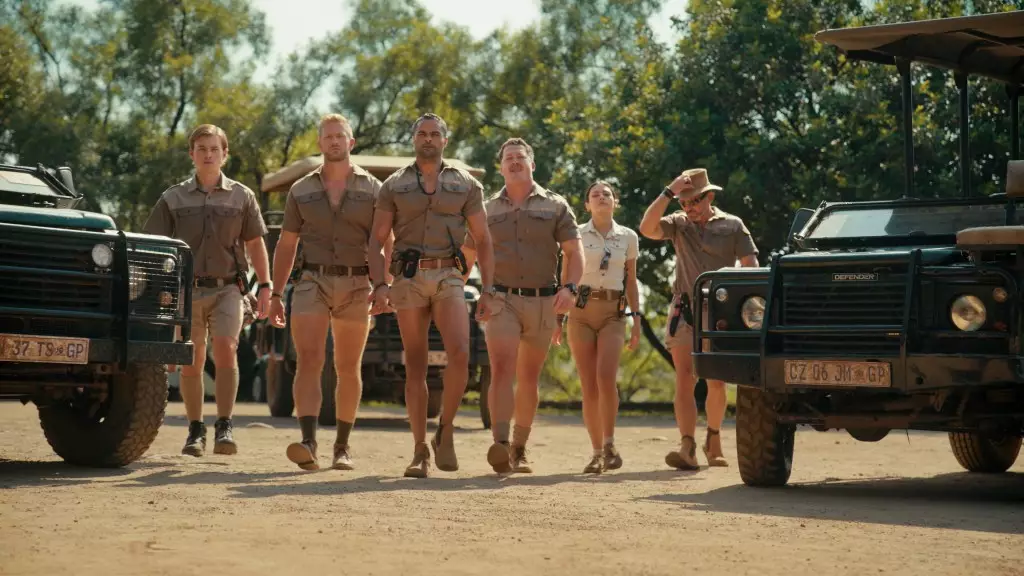In a landscape where traditional safari imagery glorifies majestic wildlife and serene landscapes, Brett Michael Innes dares to flip the script with his upcoming comedy, *Khaki Fever*. This film isn’t merely a light-hearted romp; it’s a provocative exploration of the sometimes-unseen, unfiltered antics that bubble beneath the surface of South Africa’s lush game lodges. By centering the narrative on the wild (and wildly inappropriate) antics of hapless game rangers, Innes challenges the sanitized notions of adventure tourism, inviting audiences to confront a more candid reality: that behind the grandeur of the bush, there’s chaos, desire, and a hefty dose of humor.
What makes *Khaki Fever* particularly compelling is its unapologetic embrace of adult humor, flesh, and flirtation—elements often shunned in mainstream depictions of safari culture. Here, the rangers are rebellious, cheeky, and anything but the stoic guardians of wilderness ideals. Instead, they become their own “Kings of Khaki,” showcasing that in an environment filled with restraint and discipline, human weakness and hilarity thrive just as fiercely. This approach signifies a bold departure from the usual didactic narratives; it’s a comic rebellion that resonates with a growing desire for authentic, unfiltered storytelling—no matter how risqué.
Challenging Conventions with Wit and Humor
The film’s premise is as irreverent as it is inventive: a competition among the lodge staff to see who can seduce the most tourists during a single season, all while sidestepping their conservative boss who threatens to fire anyone fraternizing with guests. This setup might sound like typical comedy fare, but it’s ingrained in a setting that most would consider sacrosanct—nature, wildlife, and conservation. By framing the story within this environment, Innes cleverly exposes the tension between human desire and ecological integrity, blending humor with subtle critique.
Furthermore, the narrative humorously explores themes of masculinity, power, and rebellion. The rangers—played by a talented cast, including Christopher Jaftha and several award-nominated actors—are depicted as lovable misfits pushing against authority, their antics punctuated by suggestive looks, flirtatious encounters, and the playful chaos that ensues. This humorous subversion of the classic safari guide stereotype reveals a more human, flawed side of these guardians of the wild—something audiences are rarely invited to see.
The Power of Local Production and Cultural Nuance
Another striking aspect of *Khaki Fever* is its embrace of local talent and culture. Shot in the Cradle of Humankind and featuring a cast fluent in both English and Afrikaans, the film is rooted in authentic South African landscapes and social dynamics. This not only lends credibility but also infuses the comedy with regional flavor, making it resonate deeply with local audiences while offering international viewers a glimpse into South Africa’s vibrant storytelling landscape.
The involvement of prominent local actors and industry veterans underscores a conscious effort to tell a story that’s both entertaining and culturally relevant. The film’s playful yet daring attitude reflects a broader trend in South African cinema, where boundary-pushing narratives are increasingly gaining ground, challenging stereotypes, and showcasing diverse facets of society.
Embracing the Unexpected in a Crowded Genre
While comedy about adventure tourism isn’t inherently groundbreaking, Innes’s *Khaki Fever* stands out by its willingness to confront the taboo and enjoy the chaos it unearths. His earlier work, notably *Sink* and *Fiela’s Child*, already demonstrated his capacity for nuanced storytelling, but with *Khaki Fever*, he ventures into a more irreverent territory. It’s a deliberate contrast—moving from serious, award-winning cinema to a bold, bawdy comedy that revels in its own audacity.
This shift also raises questions about how South African cinema perceives its own stereotypes—whether it’s safe to laugh at the unrefined, at the playful chaos of human nature, or whether these films serve as social mirrors that challenge viewers to reconsider preconceived notions about the safari industry. Innes’s film seems to say: why not have fun with the rangers, with the wild, and with ourselves? It’s a reminder that sometimes, the most rebellious act is simply to let loose and laugh.
If *Khaki Fever* accomplishes anything, it’s that it invites audiences to step outside the idealized safari postcard and appreciate the humor in human foibles. It’s a bold, unapologetic celebration of mischief, desire, and the ragged edges that make life—whether in the bush or beyond—absolutely authentic and endlessly entertaining.
